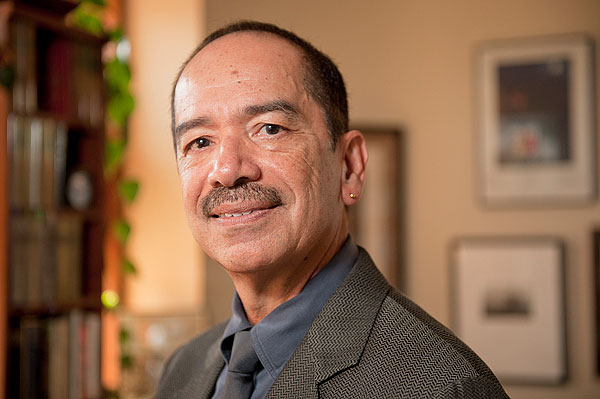Ramon Saldivar to become director of Bing Overseas Studies
The program, which sends about half of each undergraduate class abroad, has overseas studies at 11 centers all over the world, including Beijing, Cape Town and Paris, and offers overseas seminars in rotating locations that have included Brazil, India, the Netherlands, Tanzania and Turkey.
Ramón Saldívar, who has had a distinguished career at Stanford as a scholar, teacher and administrator, has been named director of the Bing Overseas Studies Program.
Saldívar, who will take the helm Sept. 1, will succeed Robert Sinclair, the Charles M. Pigott Professor in the School of Engineering. Sinclair has been the program's director since September 2010.
Saldívar brings a wealth of administrative experience to the job.
He served as the first vice provost for undergraduate education at Stanford and as the chair of the Department of English, and is currently the director of the Center for Comparative Studies in Race and Ethnicity. He has had long involvement with the Bing Overseas Studies Program, and in 2002 taught at the Oxford campus.
As director of the Bing Overseas Studies Program, Saldívar will oversee a program that includes centers in Australia, Beijing, Berlin, Cape Town, Florence, Kyoto, Madrid, Moscow, Oxford, Paris and Santiago. The program also offers Overseas Seminars in a rotating set of locations that has included Brazil, India, the Netherlands, Tanzania and Turkey.
Now in its 54th year, the program sends about 50 percent of each graduating class abroad during their time as undergraduates. In addition to the centers and seminars, the program also includes consortium programs in Barcelona and Kyoto.
Harry J. Elam Jr., the Freeman-Thornton Vice Provost for Undergraduate Education, recently announced Saldívar's appointment to the Bing Overseas Studies Program Council.
"Professor Saldívar joins the program at a time when the program is thriving and serves a large portion of the undergraduate population," said Elam, who also is the Olive H. Palmer Professor in Humanities.
"His challenge will be to build on these successes and act on the recommendations from the Study of Undergraduate Education at Stanford to further enhance the options for undergraduate students to study abroad and fully integrate their education in a global context."
The study recommended that:
- Stanford continue expanding the number and variety of overseas opportunities for students;
- Everyone at Stanford, from faculty members who oversee majors to coaches of athletic teams, work to reduce obstacles to study abroad for students;
- Stanford develop alternative overseas opportunities for students who cannot spend an entire quarter abroad;
- Stanford faculty and administrators look favorably on courses taken abroad when assessing fulfillment of both major and general education requirements;
- The Bing Overseas Studies Program be innovative and flexible in the way in which it deploys Stanford faculty at overseas campuses.
Saldívar is the Hoagland Family Professor in the School of Humanities and Sciences, the Milligan Family University Fellow in Undergraduate Education and a professor in the departments of English and Comparative Literature.
His teaching and research focus on the areas of literary criticism and literary theory, the history of the novel, 19th- and early 20th-century literary studies, cultural studies, globalization, issues concerning transnationalism, and Chicano and Chicana studies.
In February, President Barack Obama presented a National Humanities Medal to Saldívar in a White House ceremony.


Share This Story